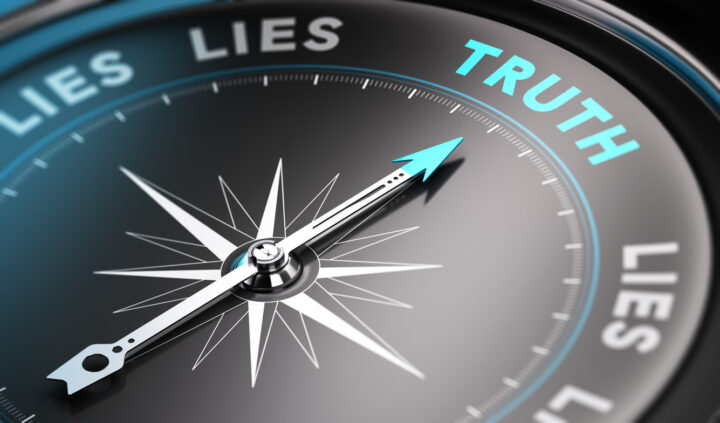Some people just can’t seem to tell the truth if their life depended on it.

It’s not always full-blown lies that get you down, either. It’s the dodging, twisting, and selective half-truths that leave you wondering if you’re losing your mind. The signs can be subtle at first, but if you know what to watch for, it becomes pretty clear who’s allergic to honesty. Here are some of the most blatant warning signs that someone isn’t exactly on speaking terms with the truth.
1. Their stories constantly change depending on who’s listening.

One version of the story for one person, another slightly different version for someone else. They’re not innocently forgetting details; they’re tailoring the truth depending on who’s in the room.
When you catch someone telling different versions of the same event, it’s not a fluke. It’s usually a habit, a way of managing impressions instead of just saying what actually happened. As time goes on, the differences start stacking up until nothing feels real anymore.
2. They get weirdly defensive over simple questions.

Asking someone a basic, non-threatening question shouldn’t spark a meltdown. However, when someone’s hiding something, even casual curiosity feels dangerous to them, and their defensiveness gives it away.
If normal conversation suddenly feels like stepping on landmines, there’s a good chance you’re dealing with someone who’s allergic to transparency. The more defensive they get, the more obvious it usually becomes that you’re touching on something they’re trying to hide.
3. They over-explain when no one asked.

Offering too much information, especially when no one’s pressing, is often a red flag. Truth doesn’t usually need to be packaged in long, rambling justifications. When someone volunteers a suspicious amount of “proof” or unrelated details, it’s often because they’re trying to convince you (and themselves) that there’s nothing to see. That frantic energy around their words says way more than the words themselves ever could.
4. They dodge giving straight answers.

Watch out for people who never quite answer the actual question you asked. Instead, they pivot, joke, get vague, or throw the conversation somewhere else entirely. It’s exhausting trying to pin down real information when someone’s made an art of dodging it. After a while, you start realising the dance is the answer, and the real story is whatever they’re too slippery to say out loud.
5. Their “facts” always seem just slightly off.

You know the type—dates that don’t match, timelines that don’t add up, weird little details that feel fuzzy even though they shouldn’t be. One or two slips could be human error. A pattern is something else. Truth has a solid feel to it. When the facts start feeling slippery or inconsistent all the time, you’re probably not getting the full picture, and deep down, they’re counting on you not putting the pieces together too fast.
6. They get angry when you ask for clarification.

Someone who’s honest usually doesn’t mind explaining themselves if something sounds confusing. Someone hiding something, though? They’ll bristle, accuse, or shut the conversation down fast. If asking simple follow-up questions sparks anger instead of openness, it’s a sign that honesty isn’t their comfort zone, and never has been. That shutdown isn’t random; it’s their last line of defence.
7. They play the victim every time they’re caught out.

Rather than owning up when caught in a lie, they flip the script and make it about how hurt, misunderstood, or attacked they feel. It’s classic deflection wrapped in self-pity. It’s frustrating because suddenly, you’re comforting them when you were the one being lied to. After a while, the emotional bait-and-switch can leave you questioning your own right to feel hurt at all.
8. They blame everyone else for their mistakes.

Someone who struggles with truth-telling rarely takes real responsibility. If something goes wrong, it’s always someone else’s fault—bad luck, bad bosses, toxic friends, never their own choices. Owning up isn’t just about character; it’s about trust. If they can’t admit basic mistakes, how can you trust them to be honest about bigger, messier things? Accountability and honesty are tied tighter than most people realise.
9. Their apologies feel rehearsed (or weirdly hollow).

When they do say sorry, it often sounds flat, rushed, or suspiciously perfect, like they’re checking off a box rather than actually meaning it. Real apologies come with vulnerability. Rehearsed ones feel like PR statements—polished, strategic, and ultimately designed to shut the conversation down, not heal anything. After a while, you start recognising the difference without even trying.
10. They have a weirdly good memory, except when it counts.

They can quote TV shows word-for-word or remember exact pub orders from years ago, but somehow their memory gets “foggy” whenever accountability is involved. Selective memory is a classic red flag. Forgetfulness that only shows up when it’s convenient isn’t forgetfulness; it’s dodging reality on purpose. And if it keeps happening, it’s almost always calculated, not accidental.
11. They tell “harmless” lies for no reason.

Little lies about things that don’t even matter—what they had for lunch, who they ran into, tiny details that wouldn’t hurt anyone either way—often hint at bigger problems underneath. When someone lies out of habit, even when there’s no real reason to, it shows that honesty isn’t their default setting. After a while, you realise it’s not about the size of the lie. It’s about the fact they lie at all.
12. They constantly pass blame onto timing or “bad communication.”

“Oh, I meant to tell you but…” or “It’s not my fault you misunderstood…” becomes a theme when someone doesn’t want to own their part in muddy situations. Bad communication isn’t always innocent. Sometimes it’s a built-in excuse system that lets them keep lying without technically lying outright. Eventually, it starts to feel like they’re fluent in dodging but strangely terrible at basic honesty.
13. They hate being asked follow-up questions.

When you scratch beneath the surface, the details start crumbling, and they know it. That’s why they get twitchy, irritable, or outright dismissive the second you start asking too much. Someone confident in their truth doesn’t panic when you’re curious. Someone hiding things often relies on you giving up before you get too close to the real answers. Silence and confusion are their best shields.
14. They constantly downplay serious issues.

If they’re caught in a lie, they brush it off like it’s no big deal, accuse you of overreacting, or act like it’s ancient history five minutes after you found out. Minimising serious breaches of trust isn’t just disrespectful, it’s strategic. It’s about making you doubt whether it’s even worth bringing up again, which lets them keep dodging consequences without having to change.
15. Their gut reactions don’t match their words.

You ask a simple question, and for half a second, you see a flicker of guilt, annoyance, or panic—but then the words that follow are calm and polished. That tiny glitch is often the real truth slipping out. Gut reactions are hard to fake. When someone’s body language and words don’t match, your instincts are usually right: something isn’t adding up, no matter how convincing they sound. Deep down, you already know the truth they’re trying so hard to hide.




